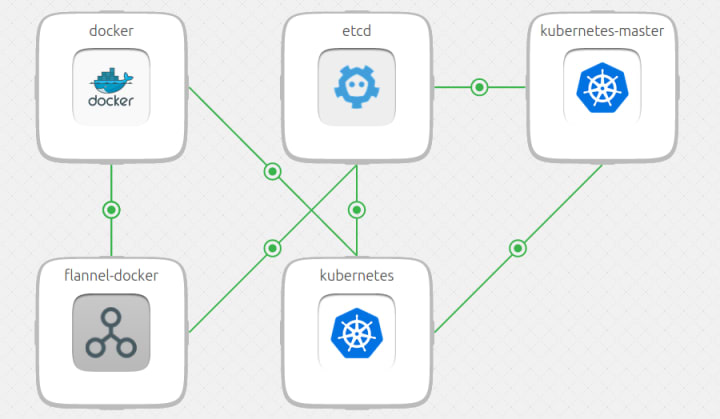Charles Butler
on 21 July 2015
Launch the newly released kubernetes 1.0.0 with Juju
Kubernetes 1.0 was launched yesterday! We’ve been tracking upstream development to enable a strong story across the two perspectives a user can enter the container cluster management space: as a consumer, and as a contributor.
Deploying Kubernetes as a Consumer
We’ve imported the Kubernetes charms into the charm store under the ~kubernetes namespace for immediate launching into your cloud environment of choice. Where might that be, you ask? Anywhere that supports Juju – so any data center, public or private. If you include the manual provider, we are everywhere!)
For the impatient
To deploy right away, if you have the juju-quickstart package installed, simply copy and paste the following into a terminal and enjoy the magic.
juju quickstart u/kubernetes/kubernetes-clusterThis will deploy the reference core of Kubernetes 1.0.0 for you, consisting of:
- Kubernetes Master
- Docker Engine x2
- Kubernetes Nodes driving the docker engines
- Flannel overlay networking between nodes
- ETCD as a shared configuration/coordinator
Total machine cost: 4

Extend your infrastructure
Since Kubernetes was modeled with Juju, you gain the instant benefit of adding complementary services to your stack, such as log aggregation with Logstash/Elasticsearch/Kibana – the ELK stack. You can deploy ELK right alongside your Kubernetes deployment, and – using Logspout – aggregate all the logs from your containers and glean insights into your cluster using kibana searches.
The fun doesn’t have to stop there however, there are tons of services in the juju charmstore (~ 250 at last count, not including namespaces) for you to bolt into your infrastructure and instantly gain benefits. Integrate full host monitoring with Zabbix, attach Landscape to apply internal policies to the machines and get monitoring as added benefit, the possibilities literally end at your imagination. With a little bit of charming, you can drive your infrastructure your way. And that is where you find the happiness.
Deploying Kubernetes as a Contributor
As an ISV or core Kubernetes contributor you can gain instant benefit from the work we’ve landed in Kubernetes upstream. Every clone of the Kubernetes git repository ships with Juju deployment scripts which enable you as the developer to make modifications and ship in a reference deployment of Kubernetes.
git clone http://github.com/googlecloudplatform/kubernetes.git
cd kubernetes
*hack hack hack*
export KUBERNETES_PROVIDER=juju
cluster/kube-up.shThis will compile the binaries for Kubernetes, and “fat pack” the charms with the modified binaries from your developer workstation. The kube-up script will do the heavy lifting of deploying the architecture and re-use the shipped binaries and distribute them across all the nodes for you.
This is excellent not only for checking modifications, but also to deploy from HEAD of the Kubernetes repository. Did you land a PR and want to verify it in a high-parity environment to your production setup? Simply set the Kuberentes provider to juju, and enjoy the consistent configuration of your deployment.
Where do we go from here?
We will continue to track the upstream Kubernetes project and offer instant value to consumers and contributors alike. Join us on the Juju Mailing list to discuss the future of our integration with the Kuberentes project.
You can also find us in #juju on irc.freenode.net – the primary drivers of the Kubernetes charms are:
- whitmo
- mbruzek
- lazypower
Deploy Happy!



